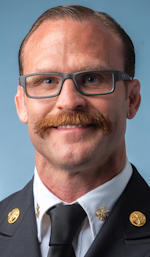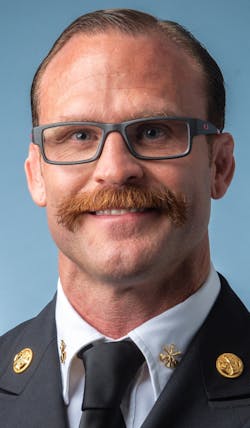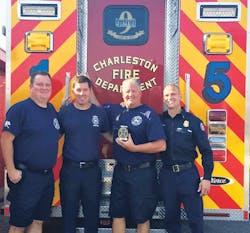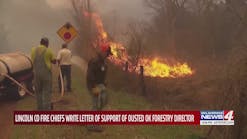As we begin the new year, many of us make resolutions, set expectations for ourselves and challenge ourselves to be better. Although all of this is important and definitely a part of human behavior, I ask that you first take a journey down the roads of gratitude and thankfulness during this time of New Year buzz. What does that mean? Well, in our world of nonstop progress, innovation and work, we don’t take the time that we need to be grateful and thankful for what is good in our lives. We arrive at a crossroads where we take things for granted instead of enjoying the small joys in life: a sunrise, the way that your home makes you feel, the air in your lungs, your health, your family, your friends, your spiritual beliefs, etc.
How does this relate to leadership? It relates quite a bit.
According to Dr. Robert A. Emmons of the University of California, Davis, when you’re grateful for your opportunities and blessings in your personal and professional life, there are social, physical and psychological impacts. His research indicates that in social settings people who exemplify gratitude are quicker to forgive, have more compassion, are willing to help more, are more generous and become more outgoing, and their feeling of loneliness is decreased. Physically, nagging aches and pains are reduced, immune systems are strengthened, blood pressure is lowered and more recuperative sleep is experienced, which lends to more energy for exercise. Psychologically, more positive thoughts and emotions permeate the mind and body, we feel more alive and ready to take on the world, and we’re happier, more optimistic and more pleasurable to be around.
If someone told you that you could get all of these benefits by being grateful and thankful for your current blessings and opportunities, would you be all in?
Be grateful
Yes, there is a flipside of the coin, when sometimes we feel that our world is crumbling, and we ask, “What do I have to be grateful for?” That’s a journey that each and every person has to figure out on an individual basis.
I’ve had great times, and I’ve had rough times, just like everyone else: the highest of highs and the lowest of lows. However, the older that I get, the more that I appreciate the things in life that make it special. I don’t take my life and my blessings for granted. I don’t take the love of my life or my family for granted. I don’t take the department which I love for granted. I don’t take for granted the opportunities that I’ve been offered because of a terrible tragedy that I’ve given my life to prevent from occurring again. I don’t take the position that I have been blessed to serve Charleston, SC, for granted. I don’t take the ability to live life for granted. I even don’t take the opportunity to write this article for granted.“Grateful,” “thankful” and “blessed” are words that come to my mind numerous times every day. This keeps me level-headed as a leader at times when many people wouldn’t be. Being grateful and thankful as a leader reduces your ego, so you finally can realize something very important: You are a spoke in a wheel. You are not the wheel. The sooner that you understand this, the sooner that you will make much more of an impact on the life of other people—and on your profession.
After all, making a difference in the life of the people who you lead should be a top priority professionally. You’re the leader. If you’re not grateful and if you don’t exemplify gratitude in your work, how do you expect your co-workers to be grateful? When you exemplify these traits as a leader, it can rub off on your personnel and can create an atmosphere in which department members actually care for each other, rather than acting as if they care in front of others but speak negatively behind others’ back. This is all too real and sad in a profession in which we talk about brotherhood and sisterhood. Unfortunately, many times this is BS, and people are nice to you only when they need something from you. Sound familiar? Probably.
Take a deep breath
So, how do we develop a GrAttitude? Simple: by practicing gratitude. Take a deep breath and try what leadership coach Christine Comaford of SmartTribes Institute provided in a 2017 Forbes article titled “Great Leaders Have an Attitude of Gratitude. Do You?”:
Close your eyes.
Focus on a blessing in your life … something you are thankful for.
See an image of this blessing in your mind’s eye.
Offer a silent “thank you” to the person or object of your blessing.
Relax into the feeling of gratitude. Take a deep breath.
Feel more gratitude.
Now, some of you might think that this doesn’t work, but research shows that it can. From personal experience, I can say that it definitely does.
When you exemplify gratefulness in your life, you set an excellent example for your employees. You also treat them better, in a way in which they actually matter, rather than just fake brotherhood and sisterhood.
Remember, if you’re ungrateful as a leader, you’re not only damaging yourself but the people who are around you and the organization that you took an oath to serve. The next time that you want to complain, don’t, and, instead, be grateful that you’re even awarded that opportunity, because some aren’t. Some are struggling just to make it through the day, where you’re complaining of issues that are white noise in the big picture.
I’m grateful, thankful and blessed. Are you?
Dr. David Griffin will present “That’s the Way We’ve Always Done It” at Firehouse World. To register, visit FirehouseWorld.com.

Dr. David Griffin
Dr. David Griffin is the assistant chief of administration in Charleston, SC. He was the operator of the first-due engine on June 18, 2007, when nine of his fellow firefighters perished. Griffin has come through the ranks in operations in every uniformed position, from firefighter to battalion chief and shift commander to his current position, during his 19-year career in Charleston. He has a bachelor's degree in education from The Citadel, a master's degree in executive fire service leadership, and a doctorate of education in organizational leadership and development. Griffin is the author of "In Honor of The Charleston 9: A Study of Change Following Tragedy," among three other books. He is an international speaker and instructor, a certified Chief Fire Officer and Chief Training Officer with The Center for Public Safety Excellence, an IFSAC/Pro Board-certified Fire Officer IV and a graduate of the Executive Fire Officer Program from the National Fire Academy. He is a graduate of Harvard University's Kennedy School of Executive Education program: Senior Executives in State and Local Government and of the Psychology of Leadership program at Cornell University's SC Johnson College of Business. Griffin is the owner of On A Mission, LLC, at drdavidgriffin.com.







